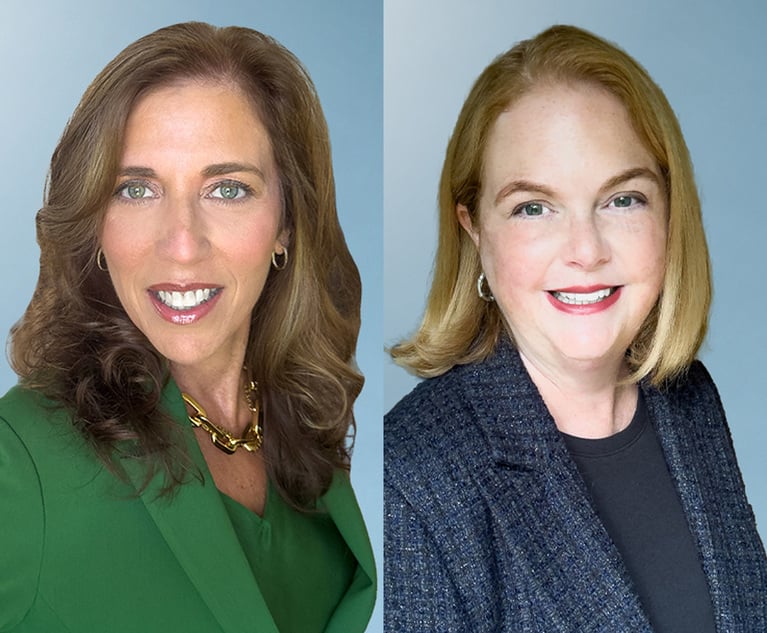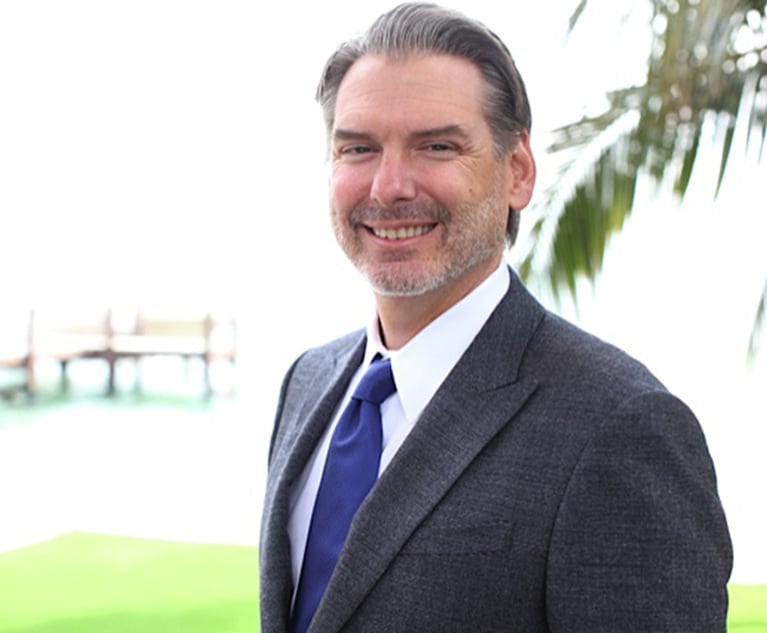International Arbitration Pro Returns to California at Boies Schiller
K. Luan Tran, a former co-founder of LTL Attorneys who spent the past two years at Vietnam's YKVN, has joined Boies Schiller Flexner in Los Angeles and Silicon Valley.
October 22, 2018 at 09:00 AM
6 minute read
 K. Luan Tran/courtesy photo
K. Luan Tran/courtesy photo
K. Luan Tran, a veteran litigator well-versed in disputes from Asia to California, has joined Boies Schiller Flexner as an international arbitration partner in Los Angeles and Silicon Valley.
The addition by Boies Schiller comes two weeks after the high-powered litigation firm recruited Quinn Emanuel Urquhart & Sullivan partner Susan Estrich in Los Angeles. Tran, who worked at Quinn Emanuel from 1997 to 2003, spent the past two years as a Singapore-based partner at leading Vietnamese firm YKVN.
In moving to Boies Schiller, Tran will return to California, where he once headed the international arbitration practice at Lee Tran & Liang, a prominent boutique he co-founded after leaving Quinn Emanuel some 15 years ago. Tran, who has more than 20 years of arbitration experience with a recent emphasis on matters related to Southeast Asia, will split his time between Boies Schiller's offices in Los Angeles and Palo Alto, California.
Tran called Southeast Asia an “exploding” market for arbitration work. Singapore and Hong Kong have become hubs for disputes lawyers, and Tran said Boies Schiller will provide him the ideal platform for advising new clients.
“I saw an increased demand for international arbitration [in Asia], especially representing U.S. companies,” Tran said. “Given my background and my experience, I could be very valuable for either U.S. clients or all clients doing businesses or facing disputes in the region.”
Of particular import to Tran, California has passed a new law clarifying that lawyers who are not members of the state bar may still appear in local arbitrations, a protocol that could contribute to more international disputes coming to the Golden State, Tran said.
“Giving its proximity to the Pacific Rim and the number of really good arbitration practitioners here, there is no reason why California should not be one of the main centers for international arbitration,” Tran added.
Tran, who is of Vietnamese descent, began his legal career at leading Canadian firm Davies Ward Phillips & Vineberg in Montreal after earning his law degree from the University of Ottawa. Wanting to explore his career options in the U.S., Tran earned his LL.M. from Harvard Law School in 1997 and took a job as an associate in Los Angeles at Quinn Emanuel, which at the time was about a decade old.
After spending a half-dozen years at Quinn Emanuel, Tran started the first of several spinoffs from the John Quinn-led litigation powerhouse when he left with James Lee to launch Lee Tran & Liang, now known as LTL Attorneys. (Enoch Liang, another former Quinn Emanuel litigator, became a name partner at LTL in 2008 after leaving Hogan Lovells' Beijing office.)
As head of the international arbitration group at LTL, Tran built a reputation as a “go-to lawyer” for ownership and partnership disputes between co-founders of technology companies. Some of the more notable cases in which Tran has been involved included representing a co-founder of social media sensation Snapchat and the founders of now-defunct smartphone app Yik Yak.
“With my experience [advising] co-founders in disputes on the plaintiff side, I think I can provide valuable insight and advantages when representing defendants,” said Tran, noting that he intends to continue using his experience and background in the co-founder space to represent Boies Schiller clients in the technology sector.
Tran left LTL in 2016. Shortly thereafter, he founded KLT Legal in Los Angeles, where he worked briefly before leaving for Asia. While overseas, Tran worked at YKVN in Singapore and Vietnam, handling complex international arbitration disputes related to investment, construction and real estate projects.
“After my return from Singapore, I was looking for a firm that would give me a good platform for my practice,” Tran said.
Tran noted that he was looking for three particular things from a new firm: A global litigation and arbitration powerhouse, a strategy to serve clients in Asia and a proven commitment to diversity and social justice.
“I think Boies Schiller checks all these boxes,” he said.
Boies Schiller, of course, and its co-founder David Boies have recently been the subject of scrutiny for their work on behalf of disgraced movie mogul Harvey Weinstein, embattled Theranos Inc. founder Elizabeth Holmes and prominent Republican Party donor Elliott Broidy. The firm has also received accolades for its work in other cases, including its litigation against white supremacist groups over the August 2017 civil unrest in Charlottesville, Virginia.
In recent months, Boies Schiller has watched several partners depart, with Cooley picking up sports litigation partner Philip Bowman in New York, where fellow former Boies Schiller partners Alanna Rutherford and Qian Gao decamped this summer for in-house roles at Visa Inc. and Meetup Inc., respectively.
In California, Boies Schiller saw former partner Linda Burrow leaves its ranks in September to become director of content litigation at Netflix Inc., while Alison Mackenzie left the firm's partnership earlier this year to become a Los Angeles County Superior Court judge. Mackenzie and Burrow were both based in Los Angeles and previously worked at local litigation boutique Caldwell Leslie & Proctor, which Boies Schiller absorbed last year.
In Northern California, Boies Schiller hired partner Quyen Ta in January from top litigation boutique Keker, Van Nest & Peters, where she was also a partner. Ta, like Tran, grew up in a Vietnamese refugee family. Tran was born in Vietnam—and like many future lawyers—fled the country following the fall of Saigon in 1975. Tran said that his long-term friendship with Ta was another reason behind his decision to join Boies Schiller.
As someone who put in a lot of hard work to build his career, Tran said he's grateful for the opportunities presented to him and is active in promoting law firm diversity and inclusion.
“I think there is no substitute for hard work,” said Tran, when asked what advice he has for young lawyers. “You obviously have to do good work, but I think it is equally important to be a good person. The legal profession is actually a very small circle, especially at the top level. It is always important to conduct yourself with integrity.”
This content has been archived. It is available through our partners, LexisNexis® and Bloomberg Law.
To view this content, please continue to their sites.
Not a Lexis Subscriber?
Subscribe Now
Not a Bloomberg Law Subscriber?
Subscribe Now
NOT FOR REPRINT
© 2025 ALM Global, LLC, All Rights Reserved. Request academic re-use from www.copyright.com. All other uses, submit a request to [email protected]. For more information visit Asset & Logo Licensing.
You Might Like
View All
Once the LA Fires Are Extinguished, Expect the Litigation to Unfold for Years
5 minute read

Faegre Drinker Adds Three Former Federal Prosecutors From Greenberg Traurig
4 minute readTrending Stories
- 1Uber Files RICO Suit Against Plaintiff-Side Firms Alleging Fraudulent Injury Claims
- 2The Law Firm Disrupted: Scrutinizing the Elephant More Than the Mouse
- 3Inherent Diminished Value Damages Unavailable to 3rd-Party Claimants, Court Says
- 4Pa. Defense Firm Sued by Client Over Ex-Eagles Player's $43.5M Med Mal Win
- 5Losses Mount at Morris Manning, but Departing Ex-Chair Stays Bullish About His Old Firm's Future
Who Got The Work
J. Brugh Lower of Gibbons has entered an appearance for industrial equipment supplier Devco Corporation in a pending trademark infringement lawsuit. The suit, accusing the defendant of selling knock-off Graco products, was filed Dec. 18 in New Jersey District Court by Rivkin Radler on behalf of Graco Inc. and Graco Minnesota. The case, assigned to U.S. District Judge Zahid N. Quraishi, is 3:24-cv-11294, Graco Inc. et al v. Devco Corporation.
Who Got The Work
Rebecca Maller-Stein and Kent A. Yalowitz of Arnold & Porter Kaye Scholer have entered their appearances for Hanaco Venture Capital and its executives, Lior Prosor and David Frankel, in a pending securities lawsuit. The action, filed on Dec. 24 in New York Southern District Court by Zell, Aron & Co. on behalf of Goldeneye Advisors, accuses the defendants of negligently and fraudulently managing the plaintiff's $1 million investment. The case, assigned to U.S. District Judge Vernon S. Broderick, is 1:24-cv-09918, Goldeneye Advisors, LLC v. Hanaco Venture Capital, Ltd. et al.
Who Got The Work
Attorneys from A&O Shearman has stepped in as defense counsel for Toronto-Dominion Bank and other defendants in a pending securities class action. The suit, filed Dec. 11 in New York Southern District Court by Bleichmar Fonti & Auld, accuses the defendants of concealing the bank's 'pervasive' deficiencies in regards to its compliance with the Bank Secrecy Act and the quality of its anti-money laundering controls. The case, assigned to U.S. District Judge Arun Subramanian, is 1:24-cv-09445, Gonzalez v. The Toronto-Dominion Bank et al.
Who Got The Work
Crown Castle International, a Pennsylvania company providing shared communications infrastructure, has turned to Luke D. Wolf of Gordon Rees Scully Mansukhani to fend off a pending breach-of-contract lawsuit. The court action, filed Nov. 25 in Michigan Eastern District Court by Hooper Hathaway PC on behalf of The Town Residences LLC, accuses Crown Castle of failing to transfer approximately $30,000 in utility payments from T-Mobile in breach of a roof-top lease and assignment agreement. The case, assigned to U.S. District Judge Susan K. Declercq, is 2:24-cv-13131, The Town Residences LLC v. T-Mobile US, Inc. et al.
Who Got The Work
Wilfred P. Coronato and Daniel M. Schwartz of McCarter & English have stepped in as defense counsel to Electrolux Home Products Inc. in a pending product liability lawsuit. The court action, filed Nov. 26 in New York Eastern District Court by Poulos Lopiccolo PC and Nagel Rice LLP on behalf of David Stern, alleges that the defendant's refrigerators’ drawers and shelving repeatedly break and fall apart within months after purchase. The case, assigned to U.S. District Judge Joan M. Azrack, is 2:24-cv-08204, Stern v. Electrolux Home Products, Inc.
Featured Firms
Law Offices of Gary Martin Hays & Associates, P.C.
(470) 294-1674
Law Offices of Mark E. Salomone
(857) 444-6468
Smith & Hassler
(713) 739-1250







